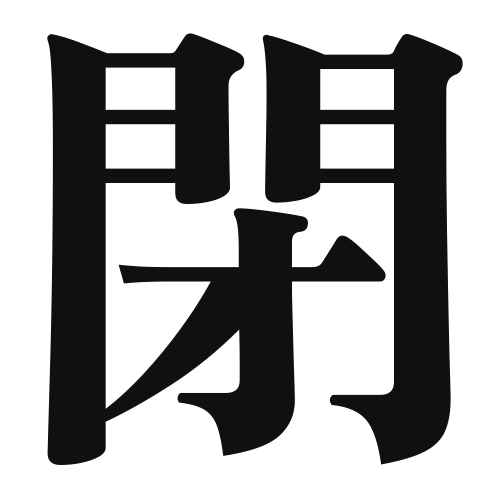1. Overview of Meaning
The kanji “閉” (pronounced “hei” or “toji”) means “to close” or “to shut.” It is commonly used to refer to closing doors, windows, or any other objects that can be shut.
2. Formation and Radical
Formation of the Kanji: The kanji “閉” is a compound character that combines elements to convey its meaning. It consists of the radical for “door” (門) and the phonetic component (弊), which contributes to its pronunciation.
Radical: The radical of “閉” is 門 (mon), which means “door” and is often associated with concepts related to entrances and exits.
3. Examples of Usage
Common Words and Phrases:
- 閉店 (へいてん, heiten) – closing of a store
- 閉じる (とじる, tojir) – to close (a book, eyes, etc.)
Example Sentences in Daily Conversation:
- ドアを閉めてください。 (Please close the door.)
- 本を閉じて、勉強を始めましょう。 (Close the book, and let’s start studying.)
4. Synonyms and Antonyms
Similar Kanji:
- 止 (とまる, tomaru) – to stop; while “閉” refers specifically to closing, “止” indicates stopping movement or action.
Antonyms:
- 開 (あける, akeru) – to open; this kanji represents the opposite action of “閉,” indicating the act of opening something.
5. Cultural and Historical Background
Relation to Japanese Culture: The concept of closing is significant in Japanese culture, often symbolizing the end of a phase or the importance of boundaries. For example, closing a door can represent leaving behind the past.
Proverbs and Idioms:
- 「閉じた扉の向こうに新しい世界がある」 (Behind a closed door lies a new world) – This proverb suggests that closing one chapter can lead to new opportunities.
